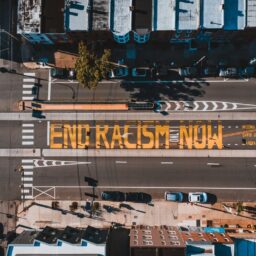FACTS OF THE CASE
In the 1950s, there existed a quota system for admission in educational institutes in Madras. There were about 4 medical colleges and 4 engineering colleges that were maintained by the State itself. In the medical colleges and engineering colleges, which were maintained by the state where the total number of seats were 330 seats and 395 seats, respectively 17 seats were reserved for those students who were from other states, and 12 seats were reserved for voluntary allotment by State, and the remaining seats for 4 community groups of districts in the State in which 6 seats were reserved for non-Brahmins, 2 seats for backward classes, 2 seats for Brahmins, 2 seats for Harijans, 1 seat for Anglo-Indians and Indian Christians, 1 seat for Muslims, and 20% seats for women. The selection was made based on various principles which were based on academic qualifications and marks obtained by the candidates who were from different community groups of the state. The reservation system continued even after the commencement of the Constitution.
Srimathi Champakam Dorairajan, a Brahmin, was unable to get admission into the Medical College even with her qualifying marks because she was a Brahmin. So, she applied to the Madras High Court under Article 226 relating to the infringement of her fundamental right of not getting admission into the medical college. And she also alleged violation of her fundamental rights under Article 15 (1) and Article 29 (2) and asked the court to quash the Communal Government Order by a writ of mandamus. Another petition was also filed in the Madras High Court by a student C. R. Srinivasan relates to her not getting admission into an Engineering College even with her qualifying marks. She obtained 369 marks out of 450 marks. She also claimed for the issue of the Writ of Mandamus to quash the Communal G.O.
ISSUES OF THE CASE
- Whether the Communal Government Order 1921 issued by the State of Madras is Constitutionally valid or not?
- Whether the State can make reservations for seats in the educational institutions based on caste or religion?
ARGUMENTS RAISED BY APPELLANT:
The appellant highlighted the point about the provision of Article 46 which states that a state has to promote the educational and economic interests of weaker sections. Mainly for the SCs and STs, and protect them from any kind of social injustice. So, Article 46 gives the right to the state to maintain the Communal Government Order by reserving seats for different communities that belong to the state. Therefore, the Communal G.O. is valid and justified in law. So, there is no violation of the Constitution for which the applicants failed to get admissions into their respective colleges. At the same time, their fundamental rights are not getting violated. In this case, the provision of Article 46 quashes the provisions of Article 29(2). It was stated that Article 46 falls under Part IV of the Indian Constitution. It deals with the Directive Principles (DPSP) where Article 37 clearly says that “The provisions contained in this Part shall not be enforced by any court, but the principles therein laid down are nevertheless fundamental in the governance of the country and it shall be the duty of the State to apply these principles in making laws.”
ARGUMENTS RAISED BY RESPONDENT
The respondent argued that the Communal Government Order under the provision of Article 46 is a clear violation of the Fundamental Rights. The respondent also added that Caste shouldn’t be an obstruction for a deserving student to get into a college maintained by a state. Caste-based reservation is a violation of Article 16(1). It was argued that Article 29 was not aimed at admission to educational institutions based on religion, caste, or race. Article 15(1) and Article 29(2) also got violated as the state discriminated against and denied admission into a college on the basis of caste.
JUDGEMENT
The infringement covers the case of State of Madras v. Srimathi Champakam Dorairajan as well as the case of State of Madras v. C. R. Srinivasan that were filed in the Madras High Court which held the decision in favour of the applicants. The High Court of Madras struck down the Communal G.O. because of the reservation system which is based on caste and against the Constitution of India. Both the appeals were dealt with under Article 226 of the Constitution which is the reason behind the violation of the fundamental rights to get admission into a college. Later the state of Madras appealed in the Supreme Court against Madras High Court’s decision where the Supreme Court held that the classification in the Communal G.O. issued by the state of Madras government based on religion, race, and caste is a clear violation of the Constitution of India and also a violation of Article 29(2) in Part III of the constitution which guaranteed fundamental rights to the citizens.
The Court held that the State cannot reserve particular seats to provide admission to the candidates according to their religion, race, or caste which is violating the provision of Article 16 (2). Denying admission on grounds of caste is an infringement of Article 15(1). The provisions of Communal G.O. were declared undemanding and inconsistent by the court which was stated void under Article 13 of the Constitution. The court gave a judgment in favor of Srimati Champakam Dorairajan. But a question arose that “Do all Fundamental Rights are superior to DPSP?” Here, the court answered the question and held that in every case which is in an inherent conflict between Fundamental Rights and DPSPs, “It will always be the Fundamental Rights that will prevail”.
CASE ANALYSIS
The State of Madras Vs. Srimathi Champakam Dorairajan case is a historical landmark case. This case not only protected and defended the Fundamental Rights of the citizens of India but also at the same time the Parliament of India reacted to the judgment of the case and thought of amending and modifying the laws which were coming in conflict with DPSPs. This case led to the First Amendment in the Constitution of India.
The First Constitutional Amendment Act, 1951 was enacted to add Clause 4 to Article 15. Article 15(4) was introduced by the constitution. So, to enable the state to make any special provisions for the improvement of backward classes. Also, under Article 15(4), The Government can reserve seats for the people of backward classes in state-run institutions or the institutions which are receiving aid from the state. But it doesn’t give the state the right to make reservations in private institutions. Other changes were related to the land reform measures, freedom of speech, freedom of trade, freedom of business which were conferred by Article 19(1)(g). Article 19(1)(g) is subject to reasonable restrictions that state may impose in the interest of the general public. Thus, it is justiciable in nature.
Until this case, there was an inherent conflict between Fundamental Rights and DPSPs because there was no clarity as to which would be more superior – Fundamental Rights or DPSPs in the case of a conflict. But after this case, there came a clarification that “Fundamental Rights are Superior over the DPSPs”.
CONCLUSION
It was a landmark case in which the Supreme court of India gave a historical judgment. It led to the First Amendment. This case showed the importance of Fundamental Rights and how much Fundamental Rights and DPSPs are concerned. If there is any infringement in the fundamental right of a citizen due to any order at that time the particular order will be considered null and void like the case of ‘State of Madras Vs. Srimathi Champakam Dorairajan’ where the Communal Government Order which was violating the Fundamental Rights of Srimathi Champakam Dorairajan who was denied admission in an educational institute on grounds of caste-based reservation was struck down by the court. This case also highlighted the need for change in some laws in the constitution which are violating the Fundamental Rights of the citizens of India. Fundamental Rights are always ‘Supreme’ and important for the people of the country as it gives them basic rights which helps them to live their life with freedom and peace.
Author(s) Name: Archita Sengupta (Xavier University, Kolkata)
















